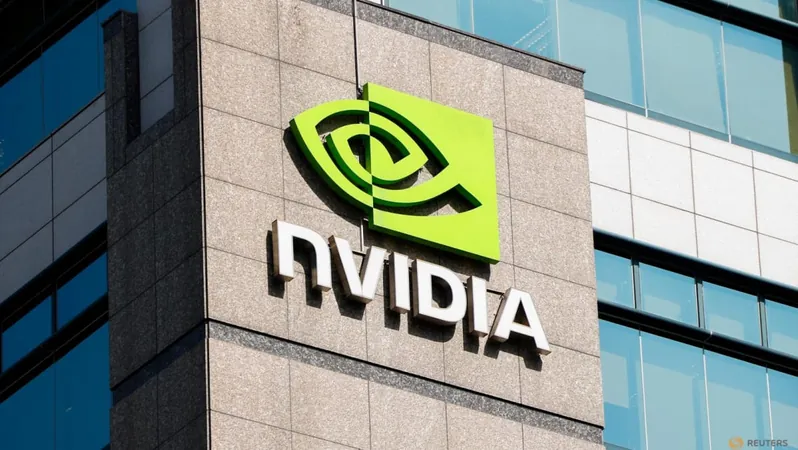
Stock Markets Shudder as US Limits Nvidia Chip Exports to China
2025-04-16
Author: Jia
Turbulent Times for Global Markets
LONDON: A cloud of uncertainty loomed over European and Asian stock markets on Wednesday (April 16), as the United States government announced sweeping restrictions on exports of Nvidia's crucial chips to China. This latest move marks a significant escalation in the ongoing trade tensions between these two economic giants.
In a recent notification to regulators, Nvidia revealed it anticipates a staggering US$5.5 billion loss for this quarter due to new licensing requirements for its chips sold in China. These H20 chips, pivotal in powering artificial intelligence, are said to potentially facilitate advancements in supercomputing technology on the mainland.
A Market in Retreat
Financial analysts are already sounding the alarm. Joshua Mahony from Scope Markets suggested that President Donald Trump’s decision regarding Nvidia could signal a tech-driven decline ahead for US equities when Wall Street reopens. After a brief period of stability in global markets, investors shifted into defensive mode, propelling gold prices to a new high of over US$3,300 per ounce.
Nvidia's stocks plummeted nearly six percent in after-hours trading, while suppliers across Asia suffered similarly. Adding to the mounting concerns, Trump has initiated an investigation that could impose tariffs on critical minerals, including rare earth elements essential for various technologies such as smartphones and electric vehicles.
The New Norm: Market Whiplash
Stephen Innes of SPI Asset Management aptly noted, "Nvidia dropped the mic, revealing fresh export curbs on AI gear headed to China," and mentioned the subsequent tariff probe into minerals, calling it an experience of market whiplash.
European Markets Feel the Pressure
Across the Atlantic, Europe wasn’t safe from the tremors. The London FTSE 100 index fell by about 0.5 percent around midday, despite new data indicating that UK inflation had slowed more than expected in March. Paris and Frankfurt saw similar declines, reflecting the pervasive anxiety among traders.
The US dollar continued to weaken against major global currencies, contributing to gold hitting yet another record, currently at US$3,317.75. Meanwhile, oil prices experienced a slight rise of nearly one percent; however, analysts suggested that cheaper oil could help mitigate inflation concerns.
Tensions between the US and China Escalate
Trump's recent actions are just the latest in a series of retaliatory moves that have led to fierce tit-for-tat tariffs between Washington and Beijing. China's official statements did little to calm nerves, indicating that US tariffs were straining its economy, despite a stronger-than-expected growth rate for the first quarter.
In a bold response, Beijing urged the US to "stop threatening and blackmailing," reflecting the ongoing deepening rift.
Adding another layer of complexity, Hong Kong's postal services announced they would cease shipping US-bound goods, describing the cessation as a reaction to the aggressive tariffs. Markets are bracing for what could be a volatile period ahead as these economic giants navigate their increasingly fraught relationship.



 Brasil (PT)
Brasil (PT)
 Canada (EN)
Canada (EN)
 Chile (ES)
Chile (ES)
 Česko (CS)
Česko (CS)
 대한민국 (KO)
대한민국 (KO)
 España (ES)
España (ES)
 France (FR)
France (FR)
 Hong Kong (EN)
Hong Kong (EN)
 Italia (IT)
Italia (IT)
 日本 (JA)
日本 (JA)
 Magyarország (HU)
Magyarország (HU)
 Norge (NO)
Norge (NO)
 Polska (PL)
Polska (PL)
 Schweiz (DE)
Schweiz (DE)
 Singapore (EN)
Singapore (EN)
 Sverige (SV)
Sverige (SV)
 Suomi (FI)
Suomi (FI)
 Türkiye (TR)
Türkiye (TR)
 الإمارات العربية المتحدة (AR)
الإمارات العربية المتحدة (AR)